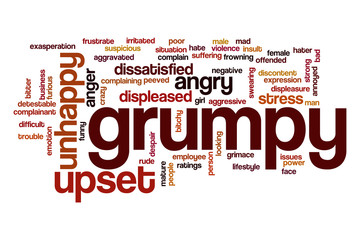It’s that time of the year when you start checking under your couch cushions for cash to help pay annual property taxes.
Most ratepayers don’t mind paying property taxes for quality services. But they get agitated when they need to pay more than their fair share, especially residents of the larger municipalities of Victoria, Saanich and Langford.
In our view, local mayors and councils need to be transparent and justify clearly why they are paying bills from senior governments that are not their responsibility and outside their lane.
After all, far fewer dollars come out of the pockets of local taxpayers when the cost of a service or capital project is shared among all provincial or federal taxpayers.
These days taxpayers have legitimate concerns when food inflation runs at 6.5 per cent and average tax assessments in Greater Victoria spike up 35 per cent (even though tax rates haven’t been set). Blame it on the pandemic, disrupted supply changes, more costly law enforcement, or high public sector wages, this year property taxes will increase a little more than they usually do.
Municipalities in Greater Victoria are considering or have approved budget increases in the 4.5 to 6.0 per cent range.
In Vancouver a 6.35 per cent property tax increase prompted loud grumblings. It was attributed to more spending on police and firefighters, and the introduction of a new “climate levy.”
The backlash grew louder after a 14-page staff report hit council tables that found taxpayers are paying a lot more than they should be.
It concluded Vancouver spent an astounding 15 per cent or $219 M of the operating budget in 2021 on provincial and federal responsibilities. It makes for fascinating reading and raises questions about governance in Greater Victoria.
The Vancouver study also adds there are many other significant budget impacts in addition to the $219 M that are impossible to quantify such as regulatory and legislative cost impacts. Staff never looked at capital expenditures like roads, sidewalks and buildings, a substantial portion of all municipal budgets.
In Victoria, for example, if this benchmark held true council may be spending $30 M of the 2021 operating budget in an area of senior government responsibility. If this benchmark held true it would be in the order of $20 M for Saanich.
Whatever the amounts locally and they may be negligible, it begs the question, ‘Where do municipal taxpayer responsibilities end, and that of the provincial and federal taxpayer begin?’
Clearly some of the 93 local politicians don’t know.
Victoria council for example recently approved a contentious $200,000 annual reconciliation grant to two neighbouring First Nations, an area that has traditionally been a senior government responsibility. By not requiring a report on the expenditure (like every other grant they dole out) they compounded a dubious decision by failing in its fiduciary duty to taxpayers.
Saanich council has embraced climate action, an area of emerging service need that have resulted in an expanded mandate for municipalities. More than $ 2.6 M was added to the budget in 2021 to address the climate action emergency.
Municipalities seem to be more than willing to spend significant local tax dollars on traditional areas of federal and provincial responsibility such as affordable housing, childcare health, the environment, homelessness, and at the same time, quick to demand more local tax dollars
The taxpayer needs a clear understanding of how many hard-earned dollars are being unnecessarily collected to fund someone else’s responsibilities. How can these non-traditional services be uploaded back to the province and federal government?
The province and Union of B.C. Municipalities are currently reviewing the local government finance system to ensure municipal governments and regional districts “remain resilient in the face of economic changes.” A memorandum of understanding (MOU) on Local Government Financial Resilience was recently signed.
In tandem, some of the larger regional municipalities – particularly Victoria, Saanich and Langford – should study how much of their budgets are spent on the responsibilities of senior governments.
The bottom line for residents and businesses are quality services delivered at a reasonable price. If expenditures are outside local jurisdictions, councils must be transparent and justify why local taxpayers are paying those bills.
READ MORE:
Comment: Local tax dollars should not be spent on things like this, Times Colonist, Feb. 23, 2022.
City funds allocated to downloaded services that have traditionally been delivered by senior governments, City of Vancouver, Dec. 2021.
Global TV Vancouver https://globalnews.ca/video/8518679/vancouver-councillor-questions-spending-in-city-budget
Daily Hive print story https://dailyhive.com/vancouver/city-of-vancouver-downloaded-provincial-federal-costs
Ensuring local government financial resiliency, UBCM, Aug. 2021.

Thank you GT …..we need more people like you. Victoria’s city council is supposed to operate for us but the majority are clueless.